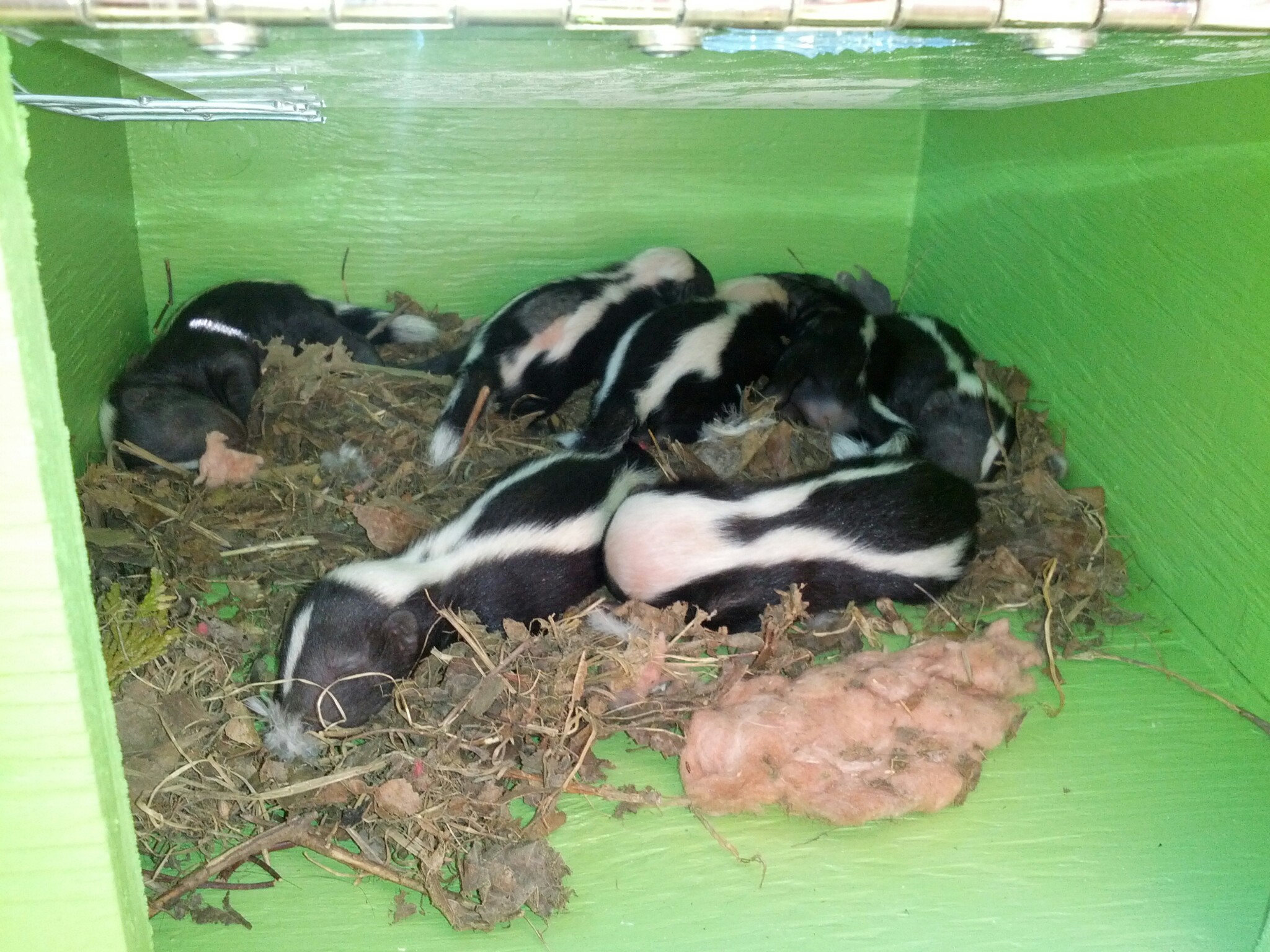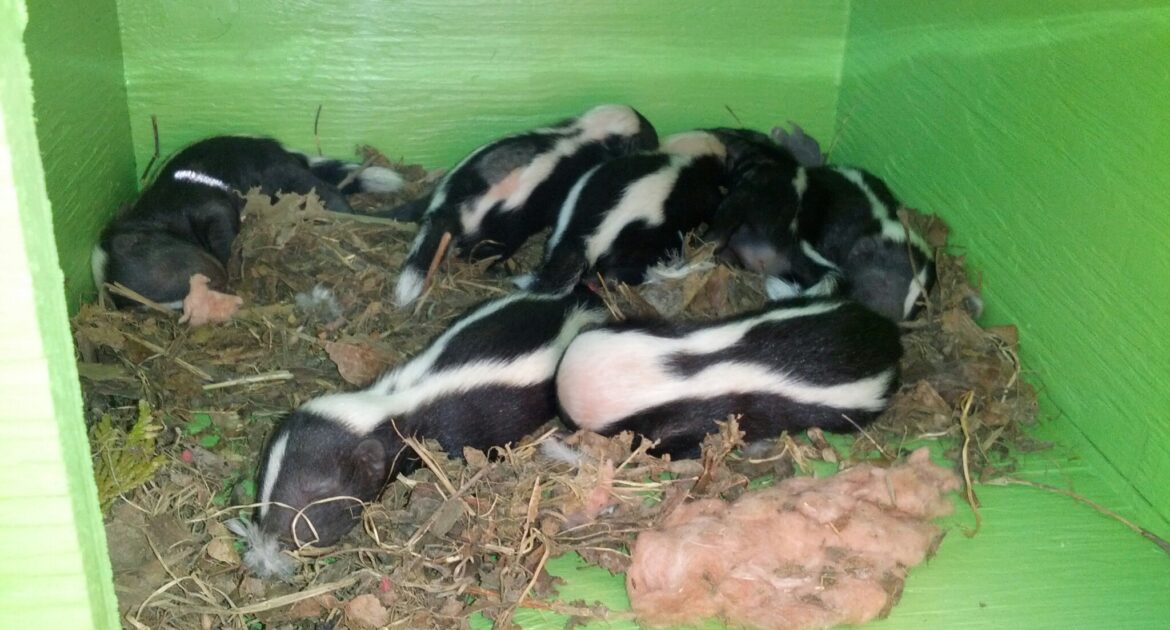When you think of Oakville, skunks might not be the first thing that comes to mind, but this suburban area is home to a surprising variety of these fascinating creatures. Several skunk species contribute to the local ecosystem. The most commonly found are the striped skunks, but you might also encounter spotted and hooded skunks. These animals play an important role in controlling insect populations and aerating soil.
Understanding the skunk population can help residents coexist peacefully with these nocturnal neighbours. It’s also crucial to be aware of the skunk breeding season, which typically occurs in early spring. During this time, they are more active and sightings become more frequent. By knowing more about these creatures, you can better appreciate their presence and importance in maintaining a balanced environment.
In this blog post, we’ll explore the number of species in Oakville, their behaviours, and what makes them unique. By the end, you’ll have a deeper understanding of your nocturnal neighbours and why Skedaddle is your best choice for wildlife control services.
An Introduction to Skunks in Oakville
Oakville is home to a diverse range of wildlife, including skunks. These small mammals are well-known for their distinctive black-and-white colouring and their ability to spray a potent scent when threatened. While they can be a nuisance, they play a crucial role in the ecosystem by controlling insect populations and helping with seed dispersal.
The most common species you’ll encounter in this area is the striped skunk. However, it’s not the only type that calls this area home. Understanding the different species and their habits is essential for homeowners who want to coexist peacefully with these animals. Let’s take a closer look at the skunk population and the unique characteristics of each species.
The Striped Skunk: Oakville’s Most Common Visitor
The striped skunk is the most frequently seen species in this city. These animals are easily recognizable by the two prominent white stripes that run down their backs. Striped skunks are nocturnal, meaning they are most active during the night. They have a varied diet, feeding on insects, small mammals, fruits, and vegetables.
During the breeding season, which typically occurs in late winter to early spring, homeowners might notice an increase in activity. Males travel in search of females, leading to more frequent sightings. Striped skunks are solitary animals, except during the breeding season and when mothers are raising their young.
In addition to their distinctive appearance and nocturnal habits, striped skunks have a unique defence mechanism. When threatened, they can spray a foul-smelling liquid from glands located near their tails. This spray can reach up to 10 feet and is highly effective at deterring predators. For homeowners, encountering their spray can be an unpleasant experience, making it essential to understand how to avoid provoking these animals.
Other Skunk Species
While the striped skunk is the most common, Oakville is also home to other species, though they are less frequently seen. One such species is the Eastern spotted skunk. Unlike the striped skunk, the Eastern spotted skunk has a pattern of spots and broken stripes on its fur. These are smaller and more agile, often climbing trees or structures.
Eastern spotted skunks are also nocturnal and have similar dietary preferences to their striped cousins. However, their population in this area is much lower, making sightings rare. Despite their smaller numbers, it’s essential for homeowners to be aware of their presence and understand their behaviours.
Another species that might occasionally be spotted is the hooded skunk. These animals have a thicker coat and a more bushy tail than striped skunks. They also have a distinctive white “hood” of fur that extends over their head and shoulders. Hooded skunks are more commonly found in the southwestern United States, but there have been occasional sightings in southern Ontario.
Understanding these less common species can help homeowners identify and appreciate the diversity of wildlife in their area. While encounters with these animals are rare, knowing their characteristics and behaviours can help prevent conflicts and promote coexistence.
Skunk Behaviours and Habits
Skunks are generally shy and non-aggressive animals, preferring to avoid conflict whenever possible. They are nocturnal, meaning they are most active during the night when they forage for food. They have a varied diet that includes insects, small mammals, fruits, vegetables, and even garbage if accessible. This opportunistic feeding behaviour can sometimes lead to conflicts with homeowners.
During the breeding season, which typically occurs in late winter to early spring, skunks become more active as males search for mates. After mating, females will prepare dens where they give birth to and raise their young. These dens can be found in burrows, under decks, or in other sheltered areas. Homeowners should be cautious during this time, as disturbing a den can provoke defensive behaviours.
One of the most well-known behaviours of skunks is their ability to spray a foul-smelling liquid from glands near their tail. This spray is used as a defence mechanism against predators and can be highly effective. The spray can reach distances of up to 10 feet and can cause temporary blindness and intense discomfort. For homeowners, avoiding encounters with skunks and their spray is a priority, making it essential to understand their habits and behaviours.
Preventing Skunk Encounters
While skunks play a vital role in the ecosystem, their presence near homes can be problematic. Preventing encounters requires a combination of understanding their behaviours and taking practical steps to make your property less attractive to them.
One of the most effective ways to prevent skunks from entering your property is to secure potential food sources. This includes keeping garbage bins tightly sealed, removing fallen fruits, and feeding pets indoors. Additionally, ensuring that compost piles are properly managed can help reduce attractants.
Securing potential den sites is another crucial step in preventing encounters. Skunks often seek shelter under decks, sheds, and porches. Blocking off these areas with sturdy fencing or mesh can help deter them from making their homes on your property. Regularly inspecting your property for signs of activity can also help you identify and address potential issues before they become more significant problems.
By taking these preventive measures, homeowners can reduce the likelihood of encounters and create a safer, more harmonious living environment.
Why Choose Skedaddle for Wildlife Control in Oakville
When skunks become a problem on your property, professional wildlife control services can provide effective solutions. Skedaddle is your best choice for humane and efficient skunk removal in Oakville. Our team of experts understands skunk behaviours and uses safe, non-lethal methods to remove and exclude skunks from your property.
At Skedaddle, we prioritize the well-being of both homeowners and wildlife. Our approach involves assessing the situation, identifying entry points, and implementing exclusion techniques to prevent skunks from returning. We do not trap or relocate skunks, ensuring that the animals are treated humanely and that homeowners are protected from future issues.
Choosing Skedaddle means choosing a company with years of experience and a commitment to excellence. Our team is dedicated to providing top-notch service and ensuring that your home remains skunk-free. With Skedaddle, you can trust that your wildlife control needs are in capable hands.
Humane Wildlife Solutions
Understanding the various skunk species in Oakville and their behaviours is essential for homeowners who want to coexist with these fascinating animals. From the common striped skunk to the less frequently seen Eastern spotted skunk and hooded skunk, each species has unique characteristics that contribute to the local ecosystem. By preventing skunk encounters and taking practical steps to secure your property, you can create a safer and more harmonious living environment.
If skunks become a problem, Skedaddle is here to help. Our humane and effective wildlife control services ensure that skunks are removed safely and that your property remains protected. Contact Skedaddle today to learn more about our services and how we can assist you with your wildlife control needs.




